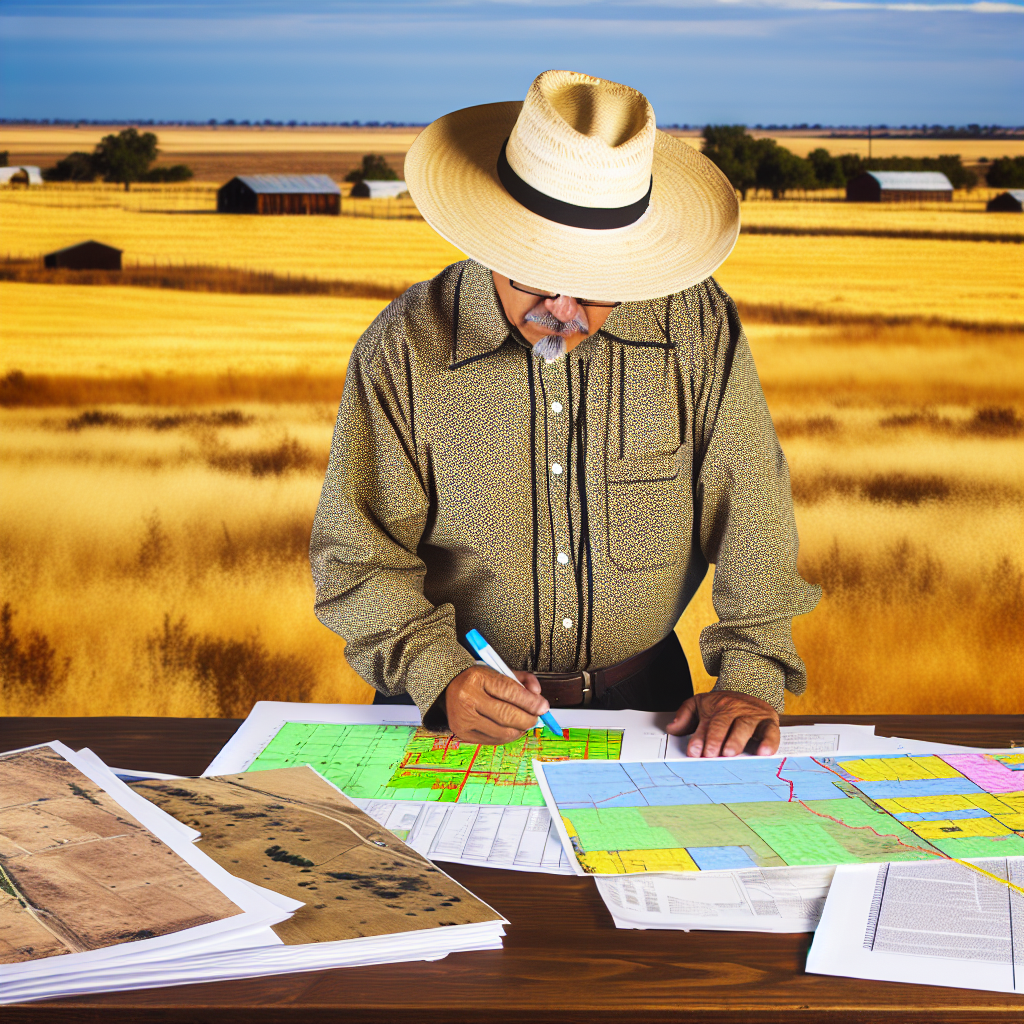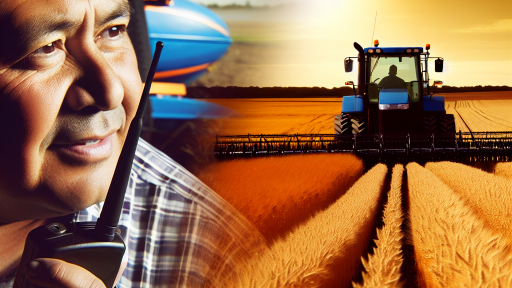Understanding the Importance of Local Zoning Laws for Farms
Defining Zoning Laws
Zoning laws regulate land use in specific areas.
They determine how land can be used for farming and other activities.
These regulations often vary from one municipality to another.
Thus, understanding local laws is crucial for farm operations.
Impact on Farming Practices
Zoning laws influence farming techniques and practices.
They may restrict or allow certain types of livestock farming.
In addition, these laws can dictate the size and type of structures built on farms.
Compliance with these regulations is essential for legal operations.
Benefits of Adhering to Zoning Laws
Following zoning laws helps maintain community harmony.
It promotes sustainable land management and resource allocation.
Additionally, general compliance can prevent legal disputes.
This support also fosters positive relationships with local governments.
Challenges Presented by Zoning Laws
Navigating complex zoning laws can be challenging for farmers.
It often requires significant time and effort to understand regulations.
Some farmers may face limitations on expanding their operations.
Transform Your Agribusiness
Unlock your farm's potential with expert advice tailored to your needs. Get actionable steps that drive real results.
Get StartedMoreover, interpreting these laws may require professional assistance.
Engaging with Local Authorities
Farmers should engage with local zoning authorities proactively.
Understanding the rationale behind zoning decisions is important.
Establishing communication can lead to mutually beneficial outcomes.
Therefore, involvement in zoning discussions is vital for farmers.
Key Terminology in Zoning Laws
Understanding Zoning Laws
Zoning laws determine how land can be used in a specific area.
They regulate various aspects of land development, including building layout and land use.
Farmers must navigate these laws to ensure compliance with local regulations.
Common Zoning Terms
Understanding key terminology is essential for farmers.
Here are some terms commonly used in zoning laws.
- Setback: The required distance between a building and the property line.
- Zoning district: A specific area designated for particular land use types.
- Conditional use permit: A special permit allowing uses not normally permitted in a zone.
- Variance: An exception to zoning regulations for specific properties.
- Land use plan: A document outlining future growth and development goals for an area.
Zoning Classifications
There are several zoning classifications that impact farms.
Each classification has specific regulations and allowed uses.
- Agricultural zoning: This designation supports farming activities and protects farmland.
- Residential zoning: This limits land use to housing and related activities.
- Commercial zoning: This permits businesses and services to operate in specific areas.
- Industrial zoning: This allows for manufacturing and industrial operations.
Importance of Zoning Compliance
Compliance with zoning laws is crucial for any farm operation.
Failing to adhere to these laws can result in penalties.
Moreover, non-compliance may lead to forced removal of structures or activities.
Understanding and following local zoning regulations fosters responsible farming practices.
Getting Assistance
Farmers can seek assistance when navigating zoning laws.
Consult local zoning offices for specific information related to your property.
Engaging with local agricultural organizations may also provide resources.
Additionally, hiring a zoning attorney can offer professional guidance.
Types of Zoning Regulations and Their Impact on Agricultural Operations
Understanding Zoning Regulations
Zoning regulations govern land use within a specific area.
They dictate what types of activities can occur on a property.
For instance, agricultural zoning allows farming but restricts commercial developments.
Each jurisdiction may have unique zoning regulations.
Showcase Your Farming Business
Publish your professional farming services profile on our blog for a one-time fee of $200 and reach a dedicated audience of farmers and agribusiness owners.
Publish Your ProfileTherefore, farmers must research local regulations.
Types of Zoning Classifications
Different zoning classifications exist to manage land use effectively.
- Agricultural zoning is primarily focused on farming activities.
- Residential zoning restricts land use to housing.
- Commercial zoning allows for business-related activities.
- Industrial zoning is designated for manufacturing and industry.
Understanding these classifications helps farmers comply with local laws.
Impact of Zoning on Farms
Zoning can significantly affect agricultural operations.
Firstly, it influences the types of crops a farmer can grow.
Secondly, restrictions may limit the construction of necessary structures.
For example, a farmer may be unable to build a barn in a residential zone.
Additionally, zoning regulations can affect livestock operations.
Compliance with these regulations is essential for sustainable farming.
Challenges in Navigating Zoning Laws
Navigating zoning laws can be challenging for farmers.
Firstly, regulations may change unexpectedly.
Secondly, the complexity of laws can confuse even seasoned operators.
Moreover, non-compliance can result in fines or operational shutdowns.
Farmers should consult local zoning boards for clarification.
Adapting to Zoning Changes
Farmers must remain adaptable to zoning changes.
This adaptability helps them mitigate potential disruptions.
Regularly attending town hall meetings can provide valuable updates.
Engaging with local agricultural organizations also offers support.
Staying informed empowers farmers to respond effectively to regulations.
Discover More: Common Challenges In Organic Certification
How to Research Local Zoning Laws
Utilizing Online Resources
Start by searching your local government’s website.
These websites often contain zoning maps and regulations.
Additionally, check for downloadable documents related to zoning.
Use the search bar effectively by typing in specific terms.
Look for a zoning ordinance or planning department section.
Explore statewide resources that could complement local information.
Consider using databases like Municode for comprehensive codes.
Consulting Local Authorities
Directly contact local zoning offices for guidance.
Staff members can provide specific zoning information.
Visit in person if possible; face-to-face communication can be beneficial.
Schedule an appointment if detailed consultation is needed.
Ask about applications or changes in zoning regulations.
Networking with Local Farmers
Join local agricultural groups or associations.
Farmers often share valuable insights about zoning challenges.
Attend community meetings focused on agricultural policies.
Participate in forums or social media groups dedicated to farming.
Engage with experienced farmers to learn from their experiences.
Reviewing Public Records
Visit your county clerk’s office to access zoning permits.
Review past applications or significant changes in zoning laws.
Public records often provide insights into future trends.
Showcase Your Farming Business
Publish your professional farming services profile on our blog for a one-time fee of $200 and reach a dedicated audience of farmers and agribusiness owners.
Publish Your ProfileRequest copies of relevant documents for more comprehensive understanding.
Understanding State Laws and Regulations
Familiarize yourself with state-level zoning laws.
State laws may influence local zoning processes significantly.
Check your state’s agricultural department for resources.
Many states have specific regulations for agricultural land use.
Continuously monitor changes at both state and local levels.
Discover More: Understanding Labor Laws for Farmers
Navigating the Application Process for Zoning Variances and Permits
Understanding Zoning Laws
Zoning laws dictate how land can be used in certain areas.
Farmers must understand these regulations before applying for permits.
Local zoning ordinances may differ significantly from one jurisdiction to another.
Thus, it’s essential to consult your local zoning office for specific guidance.
Gathering Necessary Documentation
The initial step involves collecting all required documents.
This may include land surveys and current property deeds.
In addition, gather any prior zoning applications or variances.
Make sure to have site plans detailing your proposed farming activities.
Engaging with Local Authorities
Building relationships with local officials can be beneficial.
Start with a meeting at the zoning office to discuss your plans.
Keep an open line of communication throughout the process.
Local officials can provide valuable insights into the application process.
Completing the Application
Follow the guidelines provided by your local zoning office closely.
Complete all sections of the application thoroughly and accurately.
Remember to include any supporting documents as required.
Failure to provide complete information can delay the process.
Submitting Your Application
Once you complete the application, submit it to the appropriate office.
Check if there are any associated fees for processing your request.
Request confirmation upon submission to ensure clarity and tracking.
Public Hearings and Feedback
Many zoning applications might require a public hearing.
Prepare to present your case clearly and confidently.
Listen to feedback and concerns from local residents.
Address these points by providing further details on your project.
Awaiting a Decision
After the application and hearings, expect to wait for a decision.
This period can vary widely based on local regulations.
Stay in touch with the zoning office for updates on your application.
Be prepared for a potential appeals process if denied.
You Might Also Like: Understanding Export Licensing Requirements

Common Challenges Farmers Face with Zoning Restrictions
Navigating Complex Regulations
Farmers often struggle to understand complex zoning regulations.
Each locality may have its own set of rules.
This can lead to confusion and frustration.
Moreover, many farmers lack legal expertise.
Permitting Delays
Obtaining the necessary permits can be time-consuming.
Showcase Your Farming Business
Publish your professional farming services profile on our blog for a one-time fee of $200 and reach a dedicated audience of farmers and agribusiness owners.
Publish Your ProfileIn some cases, the process delays the start of agricultural activities.
Additionally, unexpected changes in regulations can occur.
This can further complicate the permitting process.
Land Use Limitations
Zoning laws often restrict specific types of farming operations.
For instance, livestock farming may not be permitted in residential areas.
These restrictions can limit farmers’ choices.
Consequently, many are forced to adapt their plans.
Community Opposition
Some farmers face opposition from local residents.
This dissent can stem from concerns about noise or odors.
Engaging the community can help mitigate these issues.
Establishing open lines of communication is essential.
Financial Implications
Zoning restrictions can have financial repercussions.
Compliance often requires additional investments.
These expenses may deter new farmers from entering the market.
Ultimately, economic viability can be at risk.
Seeking Legal Assistance
Many farmers seek legal help to navigate zoning issues.
Experienced attorneys can provide valuable guidance.
They can help in understanding rights and obligations.
Furthermore, legal support can facilitate smoother interactions with local officials.
You Might Also Like: Navigating Farm Tax Regulations Easily
Case Studies of Successful Zoning Applications in Agriculture
Introduction to Zoning Applications
Zoning laws play a crucial role in agricultural operations.
Understanding these laws can pave the way for successful farm management.
This section explores various successful zoning applications related to agriculture.
Organic Valley Cooperative
Organic Valley is a well-known cooperative in the dairy industry.
Located in Wisconsin, it demonstrated effective zoning compliance.
The cooperative worked closely with local municipalities.
This collaboration facilitated necessary approvals for organic farming practices.
As a result, Organic Valley expanded its operations significantly.
Benefits of Collaboration
The partnership enabled not only zoning approval but also community engagement.
Local residents became more supportive of organic agriculture.
Successful zoning applications often stem from strong community relations.
Green Thumb Farms
Green Thumb Farms is located in Oregon and specializes in sustainable vegetables.
The farm faced initial zoning challenges due to location restrictions.
By presenting comprehensive environmental impact studies, they gained approval.
Effective communication with local planning boards was crucial.
Ultimately, Green Thumb Farms expanded its footprint and improved sustainability efforts.
Key Strategies Employed
- Utilizing detailed research to address environmental concerns.
- Engaging with local planners early in the application process.
- Fostering relationships with neighboring farmers for a united front.
Sunny Acres Vineyard
Sunny Acres Vineyard in California successfully navigated zoning laws.
Initially, they faced opposition from nearby residential areas.
To address concerns, they implemented noise reduction measures.
Aiming to create a positive impact, they held community meetings.
Showcase Your Farming Business
Publish your professional farming services profile on our blog for a one-time fee of $200 and reach a dedicated audience of farmers and agribusiness owners.
Publish Your ProfileThese actions transformed public sentiment and led to zoning approval.
Community Involvement Tactics
- Hosting open house events to educate locals about vineyards.
- Collaborating with residents to minimize disturbances.
- Showing the economic benefits of agritourism for the community.
Blue Sky Aquaponics
Blue Sky Aquaponics in Florida adopted innovative zoning solutions.
They proposed a hybrid farming system, combining aquaculture and agriculture.
This approach initially faced skepticism from zoning officials.
Through persistence, they demonstrated the system’s environmental benefits.
The project received unanimous support from the zoning board.
Innovative Farming Techniques
- Implementing aquaponics for sustainable resource use.
- Demonstrating water conservation benefits specific to local conditions.
- Creating educational programs to showcase the process.
These case studies illustrate successful zoning navigation in agriculture.
Collaboration and effective communication are vital elements.
Moreover, understanding local regulations can lead to fruitful outcomes.
As demonstrated, zoning laws, when navigated effectively, can foster agricultural growth.
Tips for Engaging with Local Authorities and Community Boards
Understand Zoning Regulations
Knowledge of local zoning laws is essential for farmers.
These laws dictate what types of farming activities are permitted.
Review the current zoning ordinances before starting any project.
Understanding restrictions can save you time and money.
Build Relationships
Engaging with local officials creates a positive rapport.
Attend community meetings to introduce yourself and your farm.
Share your vision and goals with community board members.
Establishing trust can result in better support for your initiatives.
Prepare a Clear Proposal
A well-structured proposal helps convey your plans effectively.
Include all relevant details regarding your farming project.
Highlight the benefits your farm will provide to the community.
Address any potential concerns the authorities might have.
Stay Informed on Local Issues
Be aware of local developments that could impact farming operations.
Monitor changes in zoning laws and land use policies.
Participate in discussions around agricultural sustainability.
This knowledge empowers you to make informed decisions.
Engage with Community Members
Involve local residents in your farming initiatives.
Offer educational workshops to share farming knowledge.
Foster goodwill through community-supported agriculture programs.
These efforts can strengthen community ties and support.
Utilize Local Resources
Leverage resources from local agricultural organizations.
Seek advice from experts in local farming regulations.
Connecting with local universities can provide valuable research support.
Use these resources to enhance your engagement strategies.
Additional Resources
How to Navigate the Zoning Process for Your Container Farm
A State-by-State Guide to Dome Home Building Laws in America …




